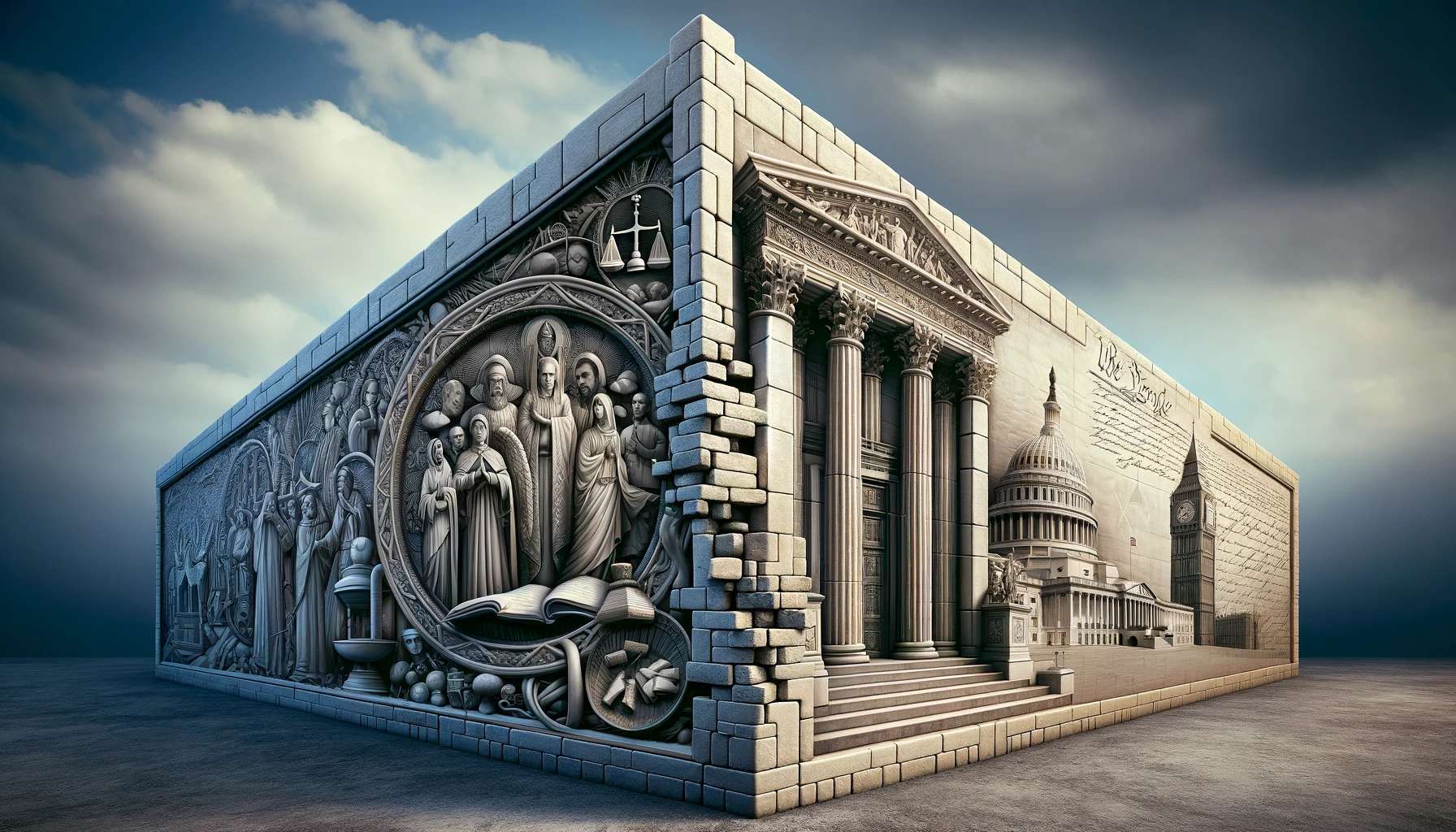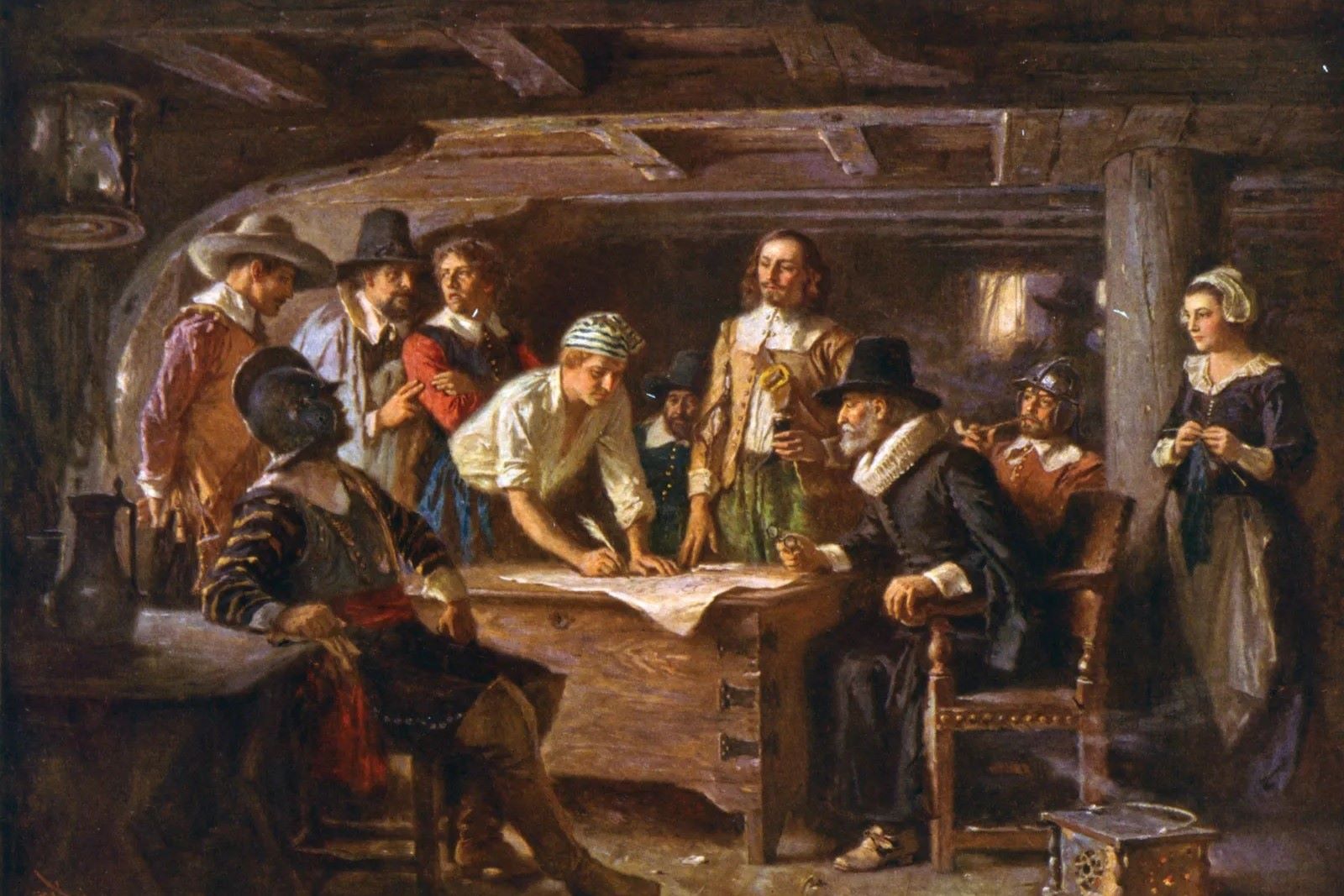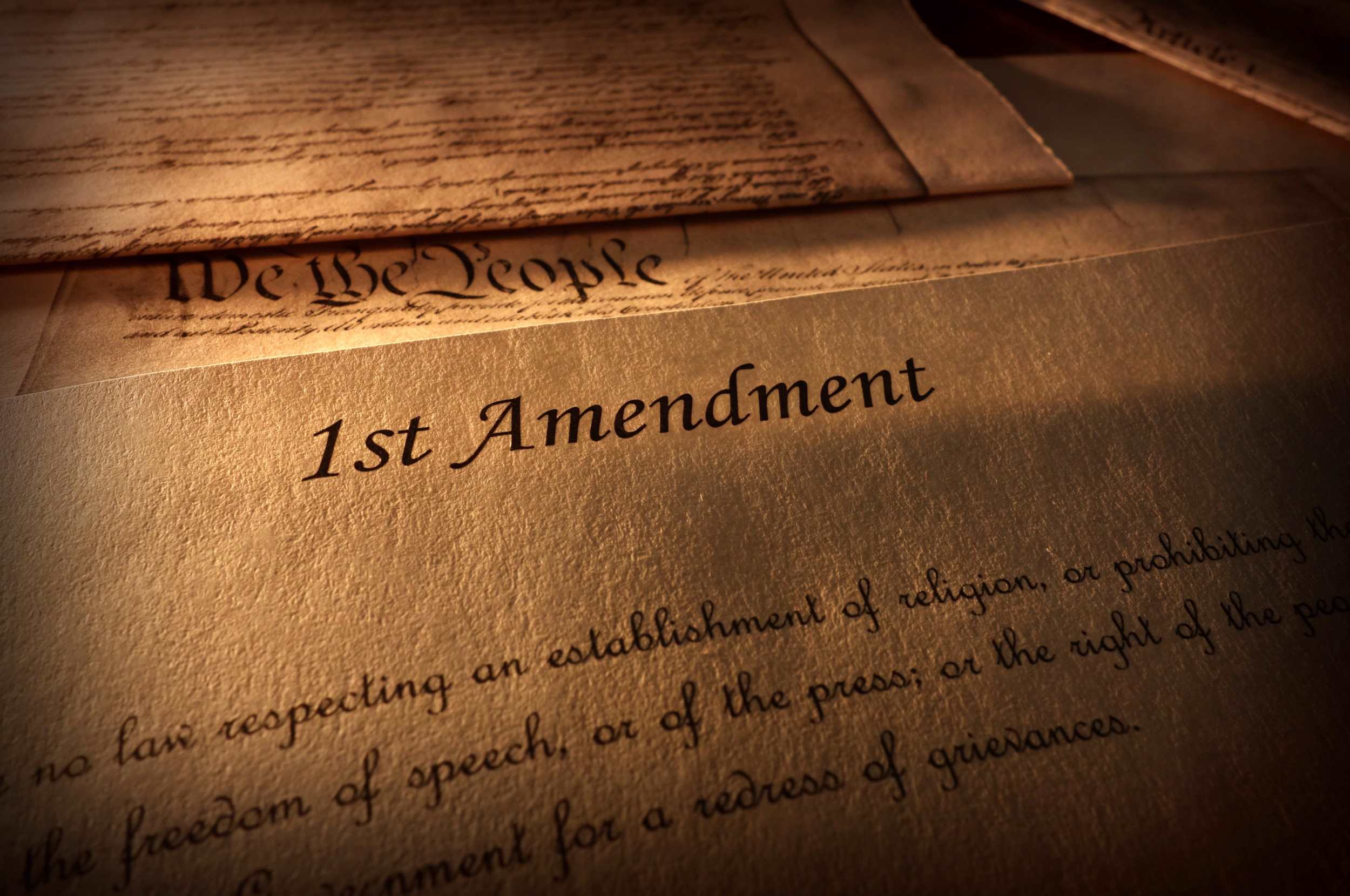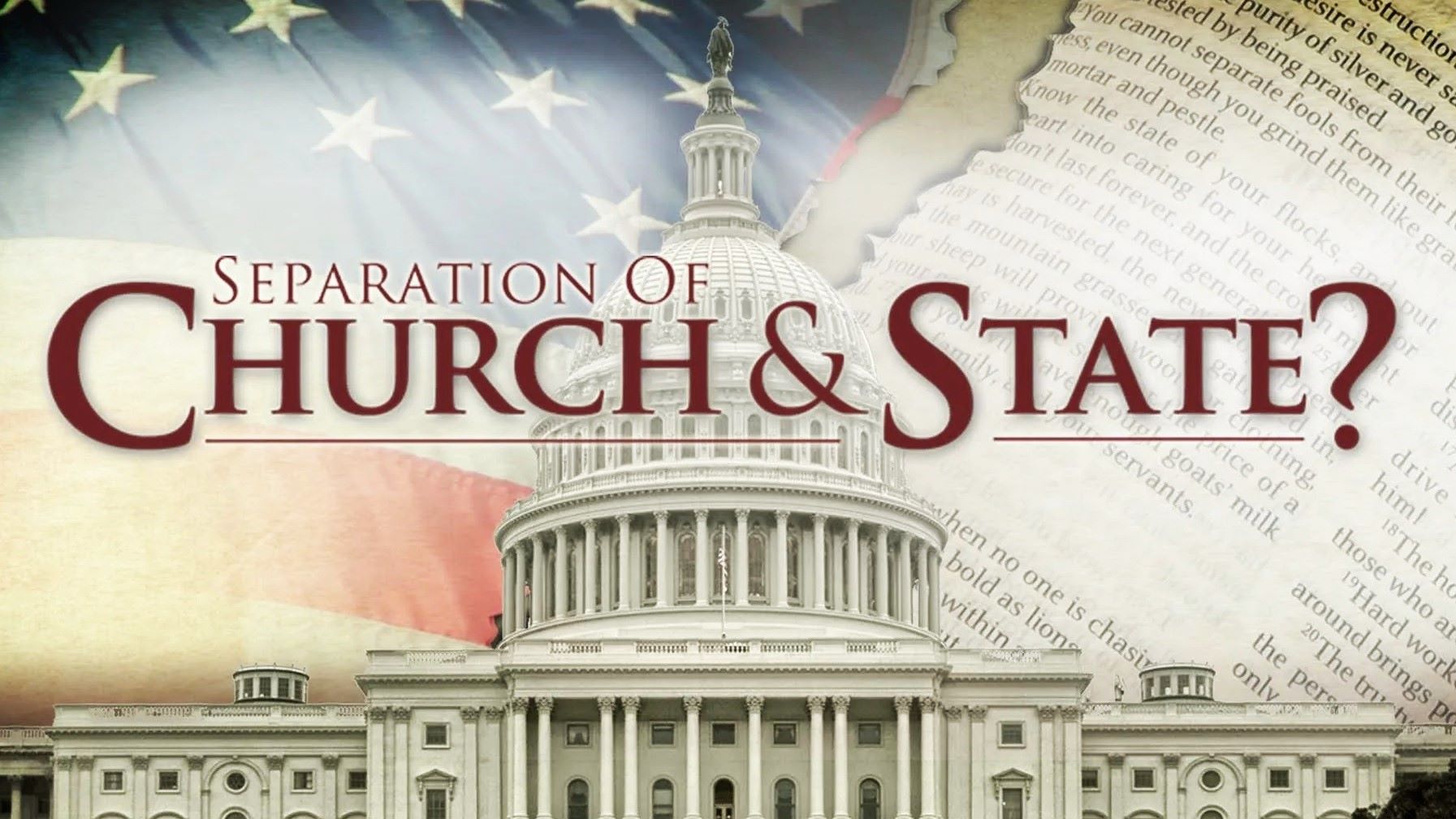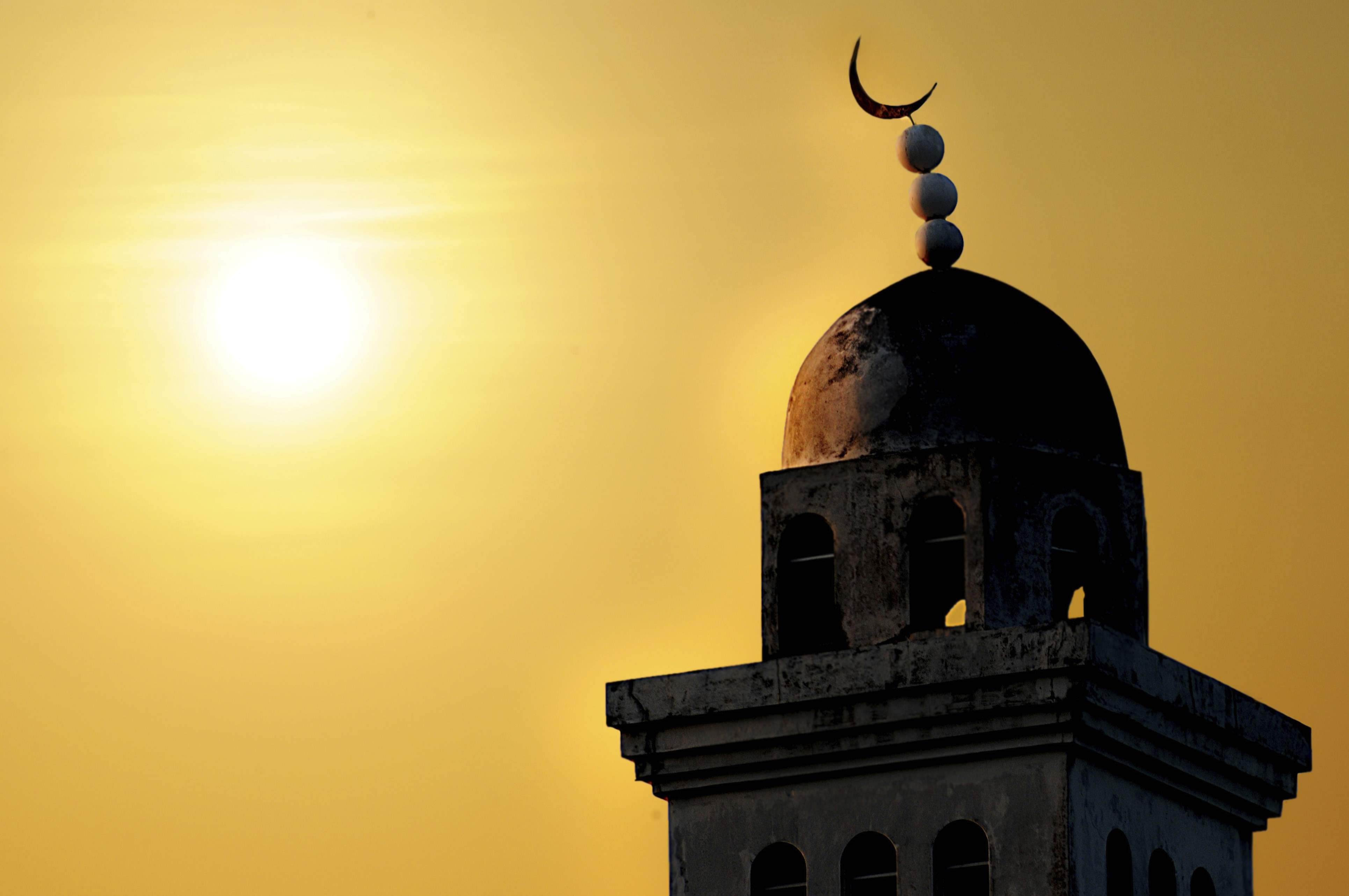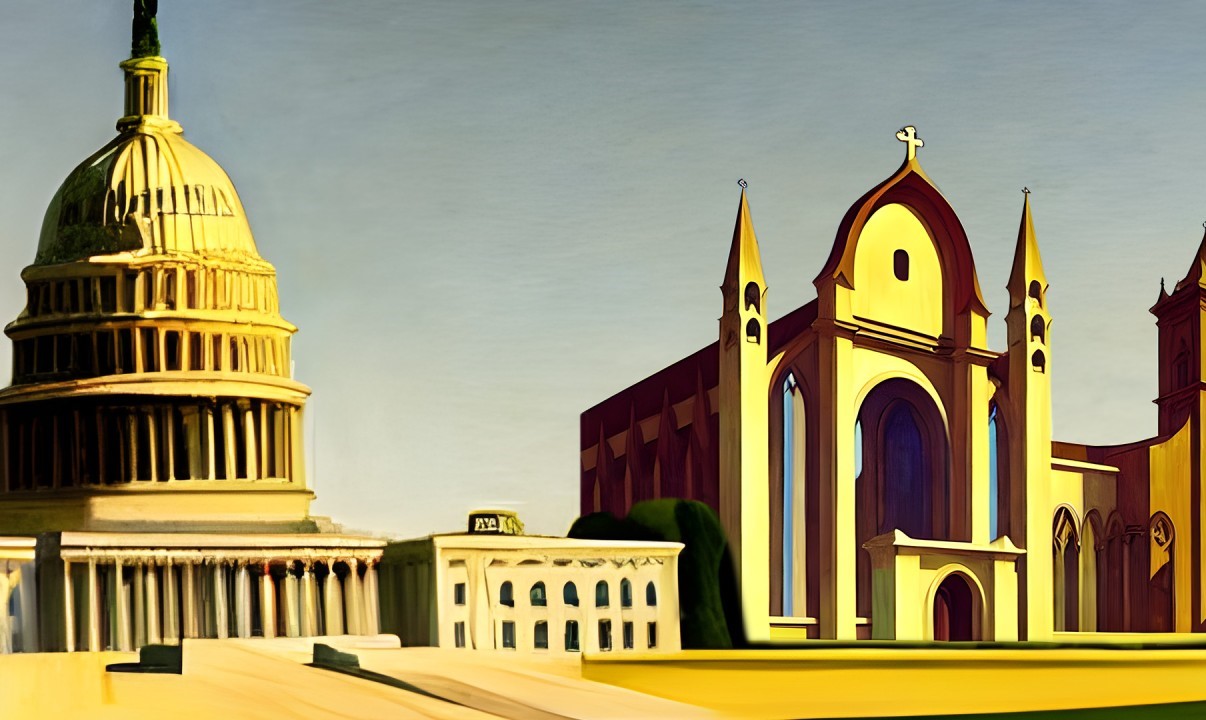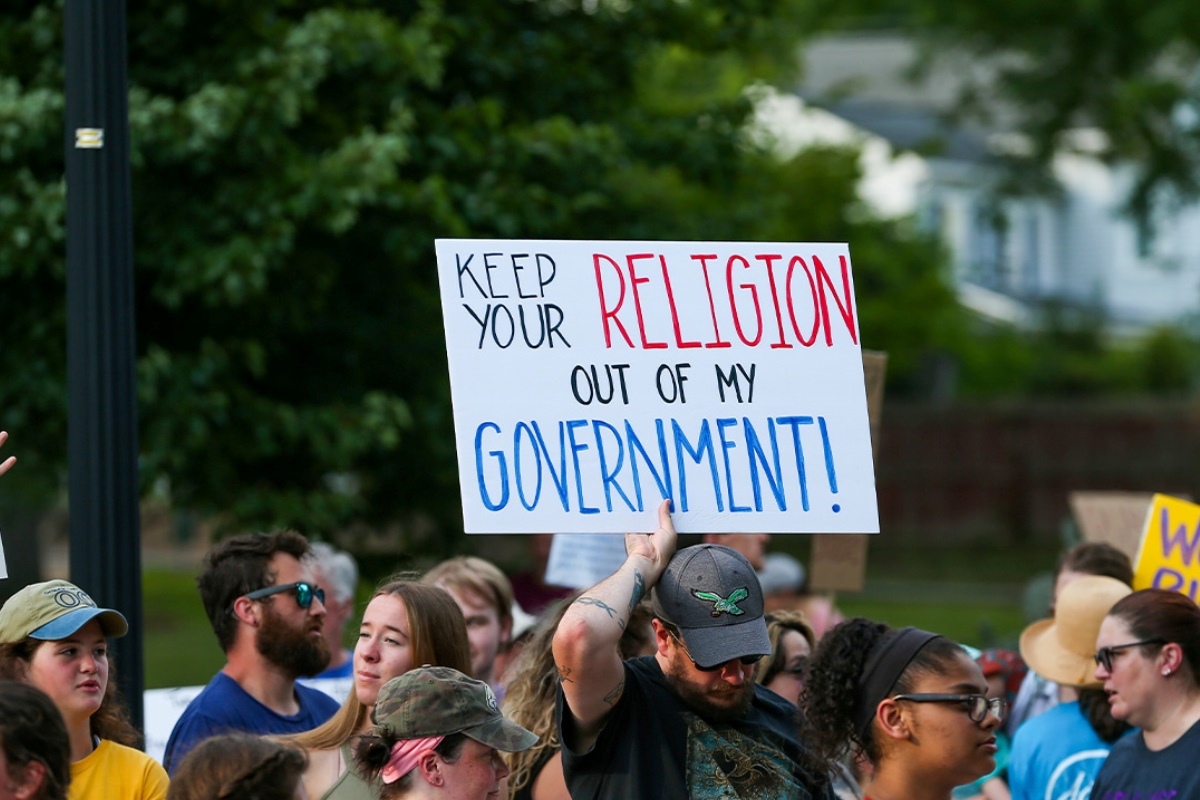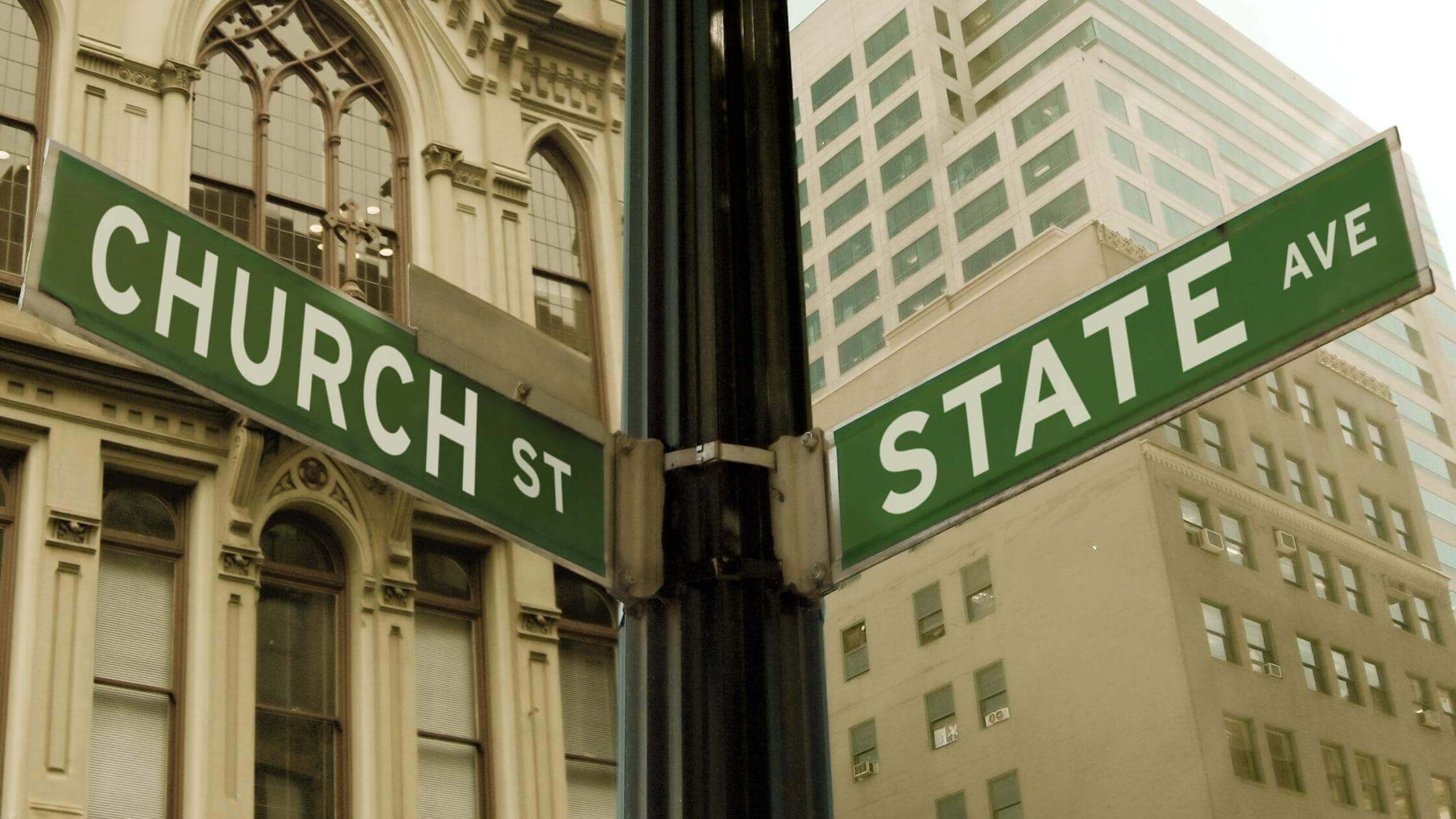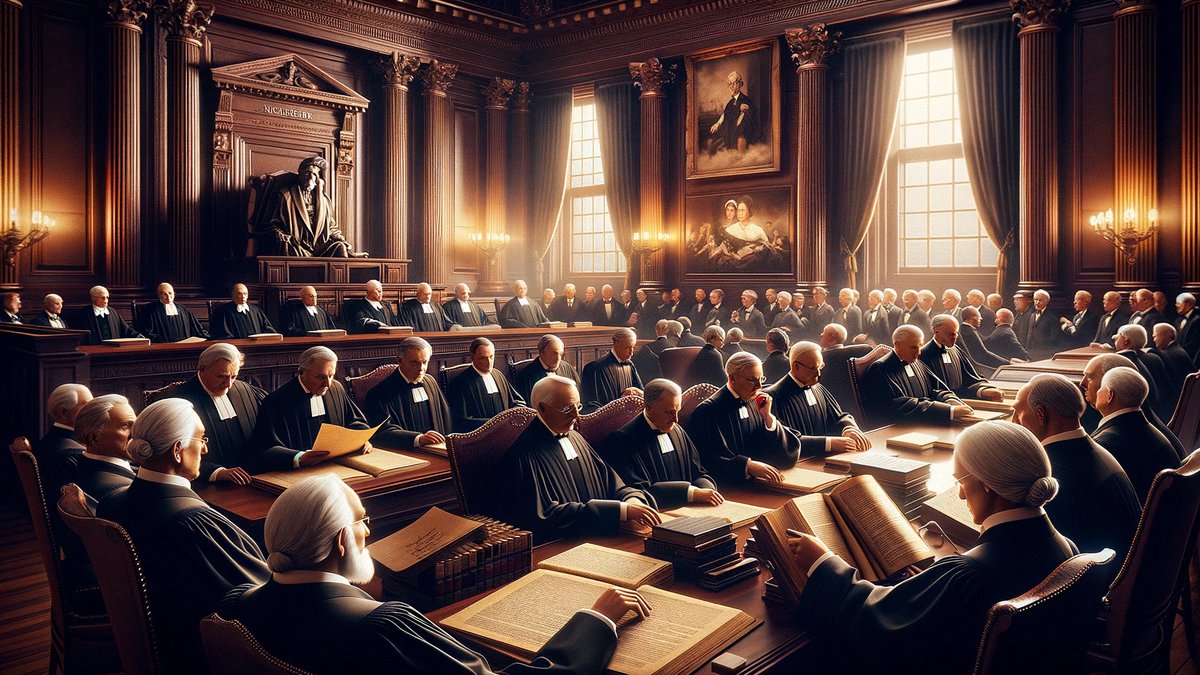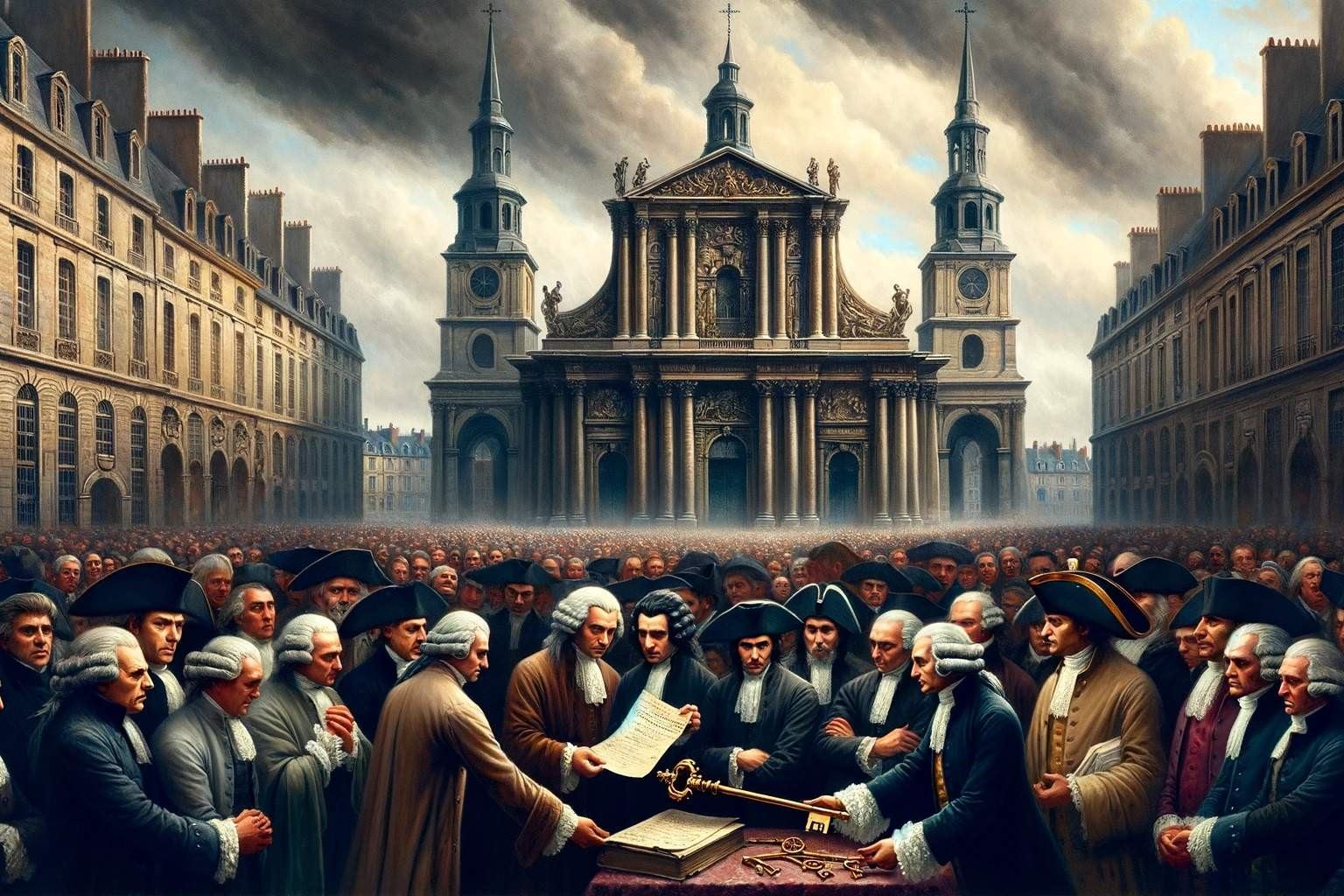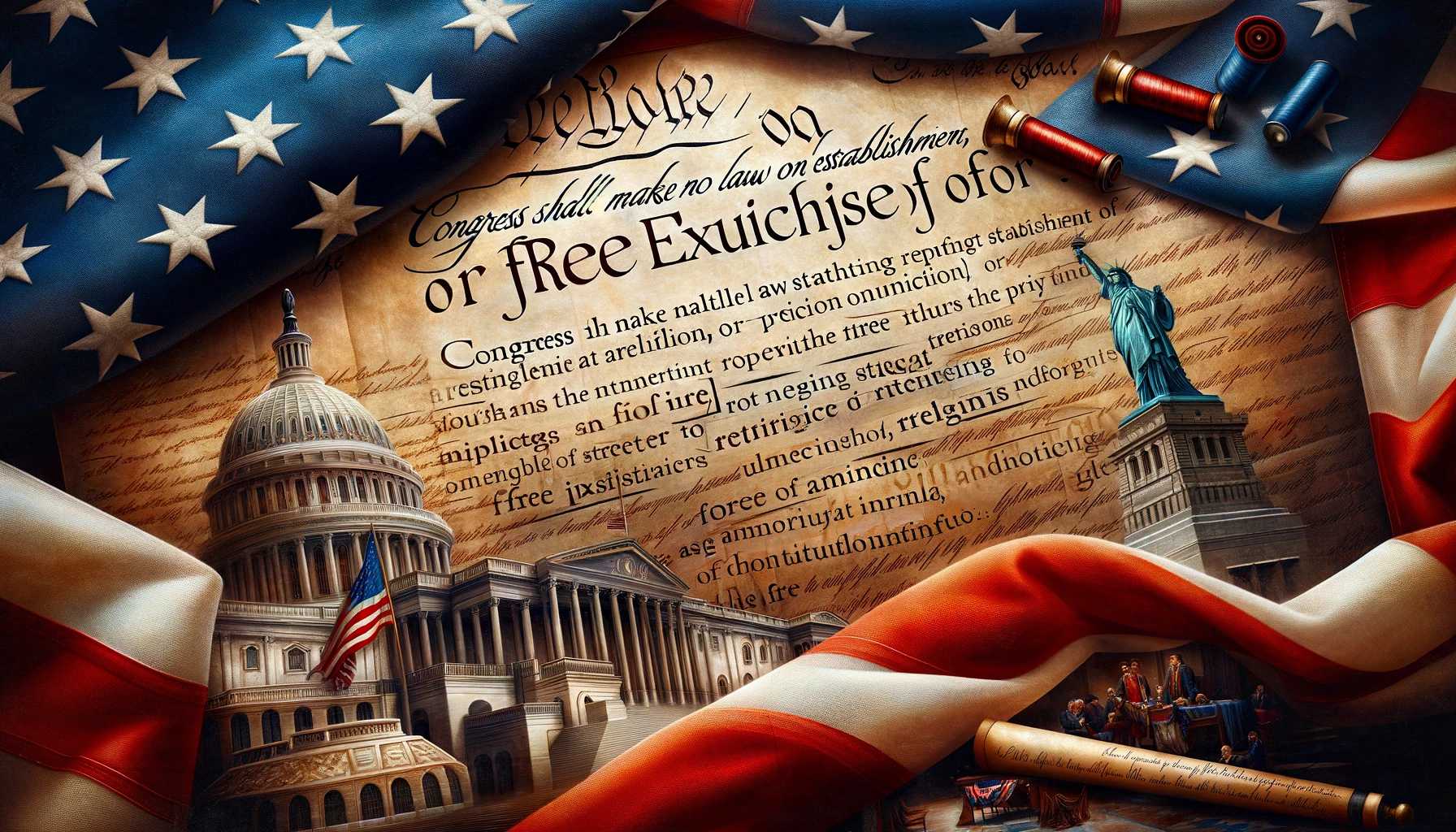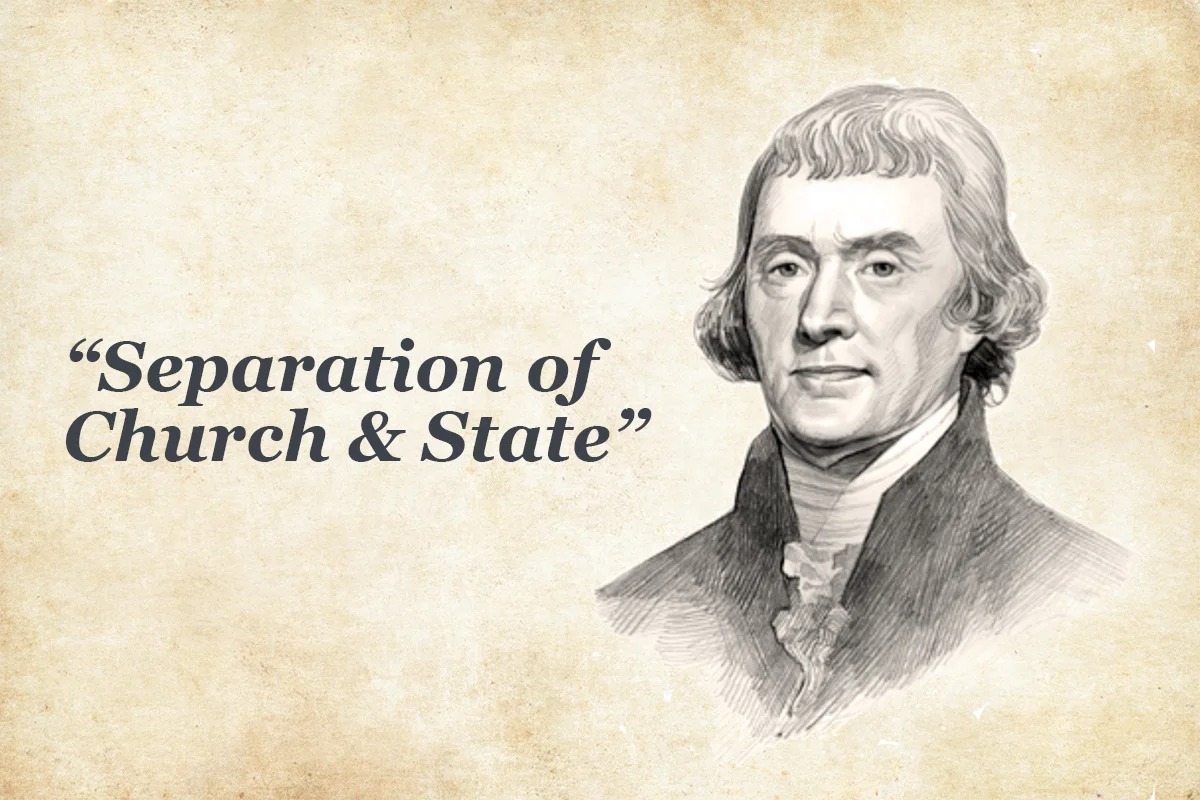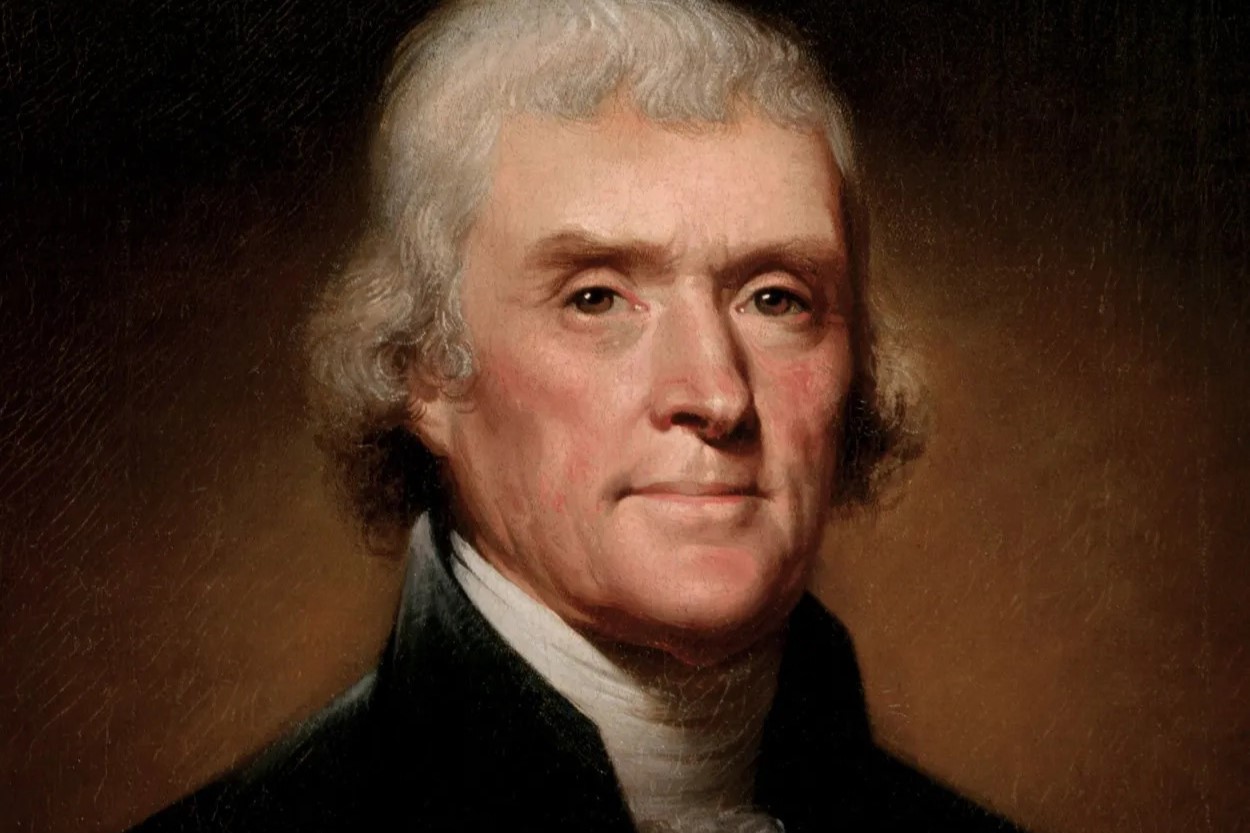Home>Theology and Spirituality>Which Philosopher Believed In Separation Of Church And State
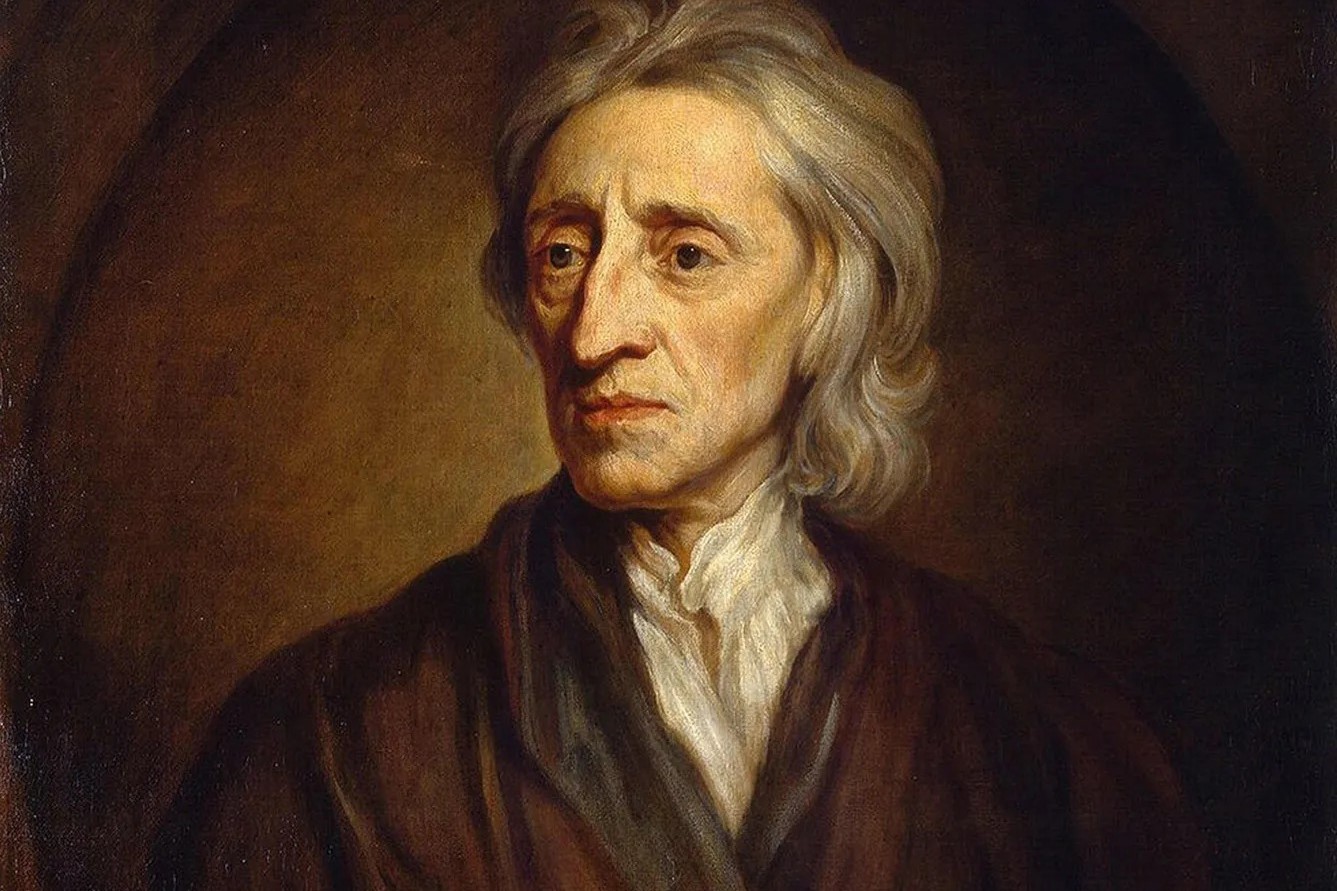

Theology and Spirituality
Which Philosopher Believed In Separation Of Church And State
Published: February 11, 2024
Ericka Andersen, an editor at Christian.net, expertly merges digital strategy with content creation, focusing on faith and societal issues. Her communication skills enhance the platform's engaging narratives, fostering meaningful dialogue on belief's impact on society.
Discover the philosophy of separation of church and state and its impact on theology and spirituality. Learn about the influential philosopher who advocated for this principle.
(Many of the links in this article redirect to a specific reviewed product. Your purchase of these products through affiliate links helps to generate commission for Christian.net, at no extra cost. Learn more)
Table of Contents
Introduction
The concept of the separation of church and state has been a topic of profound significance throughout history, shaping the relationship between religious institutions and governmental authorities. This principle advocates for the independence and autonomy of both entities, ensuring that neither infringes upon the domain of the other. It has sparked intense debates, influenced political and social movements, and continues to be a cornerstone of modern governance.
In this article, we will delve into the philosophy of the separation of church and state, exploring its historical context, philosophical underpinnings, and the influential figures who championed this idea. By examining the profound impact of this principle on societies and governance, we aim to shed light on its enduring relevance and the philosopher who played a pivotal role in shaping this fundamental concept.
The separation of church and state is not merely a legal or political doctrine; it embodies profound philosophical and ethical considerations. It reflects the fundamental human need for freedom of conscience, the autonomy of religious belief, and the impartiality of the state in matters of faith. This principle has been a catalyst for social progress, religious tolerance, and the protection of individual liberties.
As we embark on this exploration, we will uncover the philosophical roots of the separation of church and state, tracing its evolution through the annals of history and its resonance in contemporary societies. Through this journey, we will gain a deeper understanding of the profound impact of this principle on the fabric of civilization and the enduring legacy of the philosopher who ardently advocated for its realization.
The Philosophy of Separation of Church and State
The philosophy of the separation of church and state is rooted in the fundamental principles of religious freedom, individual autonomy, and the impartiality of governmental institutions. At its core, this philosophy advocates for the distinct and independent roles of religious organizations and the state, ensuring that neither entity encroaches upon the domain of the other. This principle embodies a profound commitment to safeguarding the rights of individuals to practice their faith freely, without undue influence or coercion from governmental authorities.
Central to this philosophy is the recognition of the inherent diversity of religious beliefs within society. By maintaining a clear delineation between religious institutions and the state, the principle of separation of church and state seeks to uphold the pluralistic tapestry of faith traditions, fostering an environment of tolerance, respect, and coexistence. It acknowledges that the state should not favor or endorse any particular religious denomination, thereby preserving the autonomy of religious communities and preventing the imposition of a singular faith perspective upon the populace.
Moreover, the philosophy of the separation of church and state serves as a bulwark against the potential abuse of power and the infringement upon individual liberties. By erecting a barrier between religious and governmental authority, this principle mitigates the risk of religious coercion, discrimination, or persecution by the state. It upholds the right of individuals to embrace their own spiritual convictions, free from the imposition of state-sanctioned dogma or religious orthodoxy.
Furthermore, this philosophy underscores the importance of fostering a civic space that is inclusive and equitable for all citizens, irrespective of their religious affiliations or philosophical convictions. By maintaining a neutral stance on matters of faith, the state can cultivate an environment where individuals from diverse religious backgrounds can participate in public life without encountering systemic barriers or prejudice based on their beliefs.
In essence, the philosophy of the separation of church and state embodies a profound commitment to upholding the principles of religious freedom, individual autonomy, and the neutrality of the state in matters of faith. It stands as a testament to the enduring quest for justice, pluralism, and the protection of fundamental human rights within the fabric of society. This philosophy continues to resonate as a guiding principle in the governance of nations, reflecting the timeless aspiration to create a world where the sacred realm of faith and the civic domain of governance exist in harmonious coexistence.
The Philosopher Who Believed in Separation of Church and State
One of the most influential proponents of the separation of church and state was the renowned philosopher and political theorist, John Locke. Born in 1632 in Wrington, Somerset, England, Locke's profound insights and philosophical treatises have left an indelible mark on the discourse surrounding governance, individual liberty, and the relationship between religious institutions and the state.
Locke's seminal work, "A Letter Concerning Toleration," published in 1689, espoused a radical and visionary perspective on the role of the state in matters of religion. In this groundbreaking treatise, Locke articulated a compelling argument for the separation of church and state, advocating for religious tolerance, freedom of conscience, and the autonomy of religious communities. Central to Locke's philosophy was the assertion that the state should refrain from imposing religious conformity and should instead uphold the rights of individuals to practice their faith without fear of persecution or coercion.
Moreover, Locke's profound belief in the inherent autonomy of religious institutions and the imperative of non-interference by the state resonated deeply with his advocacy for individual liberty and the protection of natural rights. He contended that the state's primary function should be the preservation of civil peace and the protection of individual rights, rather than the enforcement of religious orthodoxy or the suppression of religious dissent.
Locke's philosophy of the separation of church and state was underpinned by a profound commitment to fostering a society characterized by religious pluralism, mutual respect, and the absence of state-sponsored religious favoritism. His ideas laid the groundwork for the development of liberal democracies and constitutional frameworks that enshrine the principles of religious freedom and the neutrality of the state in matters of faith.
The enduring legacy of Locke's philosophy reverberates through the annals of history, influencing the framers of the United States Constitution and serving as a cornerstone of modern democratic governance. His advocacy for the separation of church and state continues to inspire movements for religious freedom, the protection of individual liberties, and the cultivation of inclusive and pluralistic societies around the globe.
In essence, John Locke stands as a towering figure in the pantheon of philosophers who championed the separation of church and state, leaving an indelible imprint on the evolution of political thought and the enduring quest for justice, liberty, and the harmonious coexistence of religious and civic spheres.
The Influence of the Philosopher's Ideas
John Locke's ideas regarding the separation of church and state have exerted a profound and enduring influence on the development of political thought, the evolution of constitutional governance, and the advancement of religious freedom. His philosophical insights have permeated the fabric of societies, shaping the principles of governance and inspiring movements dedicated to the protection of individual liberties and the autonomy of religious institutions.
Locke's advocacy for the separation of church and state laid the groundwork for the establishment of constitutional frameworks that enshrine the principles of religious freedom and the neutrality of the state in matters of faith. His ideas served as a catalyst for the emergence of liberal democracies, where the autonomy of religious communities is safeguarded, and the state refrains from endorsing or favoring any particular religious denomination.
The profound impact of Locke's philosophy is particularly evident in the founding documents of the United States, where his ideas permeate the fabric of the Constitution and the Bill of Rights. The First Amendment, which guarantees the freedom of religion and prohibits the establishment of a state religion, reflects the enduring legacy of Locke's advocacy for religious tolerance and the autonomy of religious institutions. Moreover, Locke's emphasis on the protection of individual rights and the limitation of governmental authority resonates in the foundational principles of the U.S. Constitution, shaping the framework of governance and the balance of powers.
Furthermore, Locke's ideas have transcended national boundaries, inspiring movements for religious freedom and the protection of individual liberties across the globe. His philosophy continues to serve as a guiding light for societies striving to cultivate inclusive and pluralistic environments, where individuals can practice their faith without fear of persecution or discrimination. From the European Enlightenment to contemporary debates on religious freedom and secular governance, Locke's ideas have remained a touchstone for advocates of the separation of church and state, underscoring the enduring relevance and universality of his philosophical insights.
In essence, the influence of John Locke's ideas on the separation of church and state extends far beyond the confines of his era, permeating the ethos of modern governance and serving as a beacon for the protection of religious freedom, individual autonomy, and the harmonious coexistence of diverse faith traditions within the public sphere.
Conclusion
In conclusion, the philosophy of the separation of church and state stands as a testament to the enduring quest for justice, liberty, and the harmonious coexistence of religious and civic spheres. This foundational principle, rooted in the advocacy for religious freedom, individual autonomy, and the neutrality of the state in matters of faith, has left an indelible mark on the fabric of societies and the evolution of governance.
The profound insights of the philosopher John Locke, who ardently championed the separation of church and state, have reverberated through the annals of history, shaping the principles of constitutional governance and inspiring movements dedicated to the protection of individual liberties and the autonomy of religious institutions. Locke's advocacy for religious tolerance, freedom of conscience, and the autonomy of religious communities laid the groundwork for the development of liberal democracies, where the state refrains from endorsing or favoring any particular religious denomination.
Furthermore, Locke's ideas have transcended national boundaries, inspiring movements for religious freedom and the protection of individual liberties across the globe. His philosophy continues to serve as a guiding light for societies striving to cultivate inclusive and pluralistic environments, where individuals can practice their faith without fear of persecution or discrimination.
The enduring legacy of Locke's philosophy is particularly evident in the foundational documents of the United States, where his ideas permeate the fabric of the Constitution and the Bill of Rights. The First Amendment, which guarantees the freedom of religion and prohibits the establishment of a state religion, reflects the enduring legacy of Locke's advocacy for religious tolerance and the autonomy of religious institutions.
In essence, the philosophy of the separation of church and state, embodied in the profound insights of John Locke, continues to resonate as a guiding principle in the governance of nations, reflecting the timeless aspiration to create a world where the sacred realm of faith and the civic domain of governance exist in harmonious coexistence. It stands as a testament to the enduring quest for justice, pluralism, and the protection of fundamental human rights within the fabric of society.

